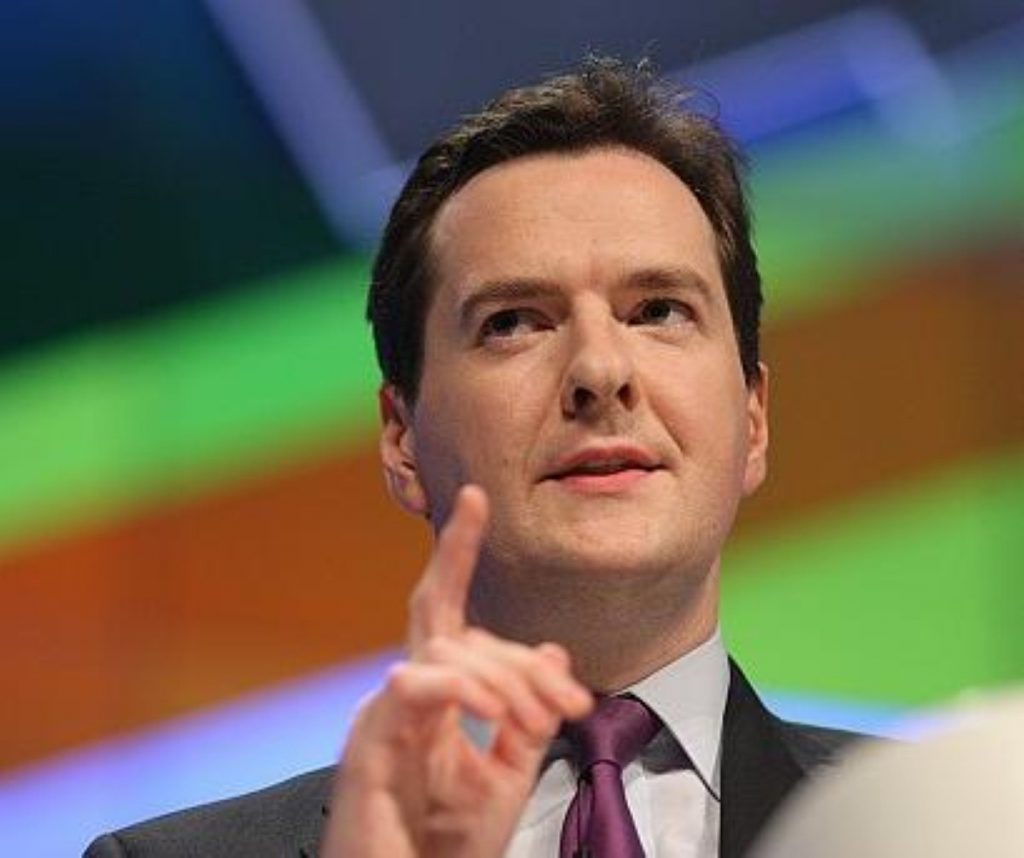Comment: Osborne’s spending review shows this is an extremist government
By Natalie Bennett
George Osborne has been chancellor for five and a half years now, so the pattern for spending reviews and budgets is becoming familiar. We get warnings of massive cuts, then on the day some of those don’t come and the news is about the services and spending saved.
Let's not fall into the trap of believing this old three card trick.
This time we already knew one of the reversals was coming – the change in plans for tax credit cuts was forced on the chancellor by that unlikely champion of the poor the House of Lords. But he managed to produce surprise on Twitter by abandoning these altogether.


This will only slow the cuts to family budgets which are coming anyway, under government plans to switch all households on benefits over to universal credits. That means government savings rising to £3 billion a year by the end of the parliament – or in other words cuts of £3 billion to household budgets. That's of course if the government manages to make the universal credit computer system work on a large scale, something over which there's been considerable doubt.
That's only one of the issues with the underlying structure of this budget – the other is the generous estimates of growth, and "adjustment" of figures for tax revenue provided by the Office for Budget Responsibility for the chancellor. More than £29 billion has been found from 'modelling changes'. It's handy what you can find down the back of the sofa. These efforts have raised more than a few eyebrows.
No doubt the chancellor would rather focus on the maintenance of funding for police, which was expected to be cut along with funding for the Foreign Office. Both of those decisions are welcome – the funding for diplomacy is something I've been focusing on. But let’s not lose sight of the cuts.
One of the hardest-hit areas is the environment. On the day that record figures for excess winter deaths were announced, £132 million was removed from the budget for home energy efficiency. We have a fuel poverty problem because of the poor quality of our housing stock – now progress in improving that (following the abandonment of the zero-carbon homes standard for new homes) will be snail-like.
That’s just one of the blows to green small businesses, who were hoping to do that work. After solar installers took the hit on the virtual abandonment of the feed-in-tariff, it is installers of biomass boilers, anaerobic digesters and other green heating sources who'll suffer from the £700 million cut to the Renewable Heat Initiative, the last government's flagship programme.
Instead the government is betting our energy future on fracking and highly speculative research into 'modular small-scale' nuclear. Meanwhile the proven technologies of solar and wind are being left as poor relations, despite their fast-falling cost and rapid adoption across much of the rest of the developed world.
In other spending areas, once again it's young people who are bearing the brunt of much of the government's cuts. In a notable piece of Osborne 'newspeak', we were told that he was "modernising" funding for nurse training. In other words bursaries for student nurses will be ended. Nursing students will henceforth be forced to fund their studies with loans, despite our shortage of nurses and the fact that a nurse's income is already inadequate for the needs of many.
The income threshold at which student loans have to be paid back – loans that students have already taken out – is to be frozen at £21,000. That means by the end of this parliament two million students will have paid £300 more towards loans – £300 that wasn't in their original contracts and that is going towards loans that at least three quarters of them will never pay off.
Further cuts of note (and this isn't a comprehensive list) include public health funding (meaning more pressure down the line on the NHS and more ill-health for the nation), tax credits for families with more than two children, cuts to short money that funds democratic scrutiny of the government, massive cuts to the Department of Energy and Climate Change, the Department for Transport and the Department for Energy, Food and Rural Affairs.
Overall, one figure is telling: over her entire term of office, Margaret Thatcher cut public spending by six percentage points of GDP. Osborne has already cut public spending by six per cent, to below 40% of GDP, and he's well on track to a planned 36% by the end of this parliament.
This is clearly an extremist government, with plans for a 'small government' (smaller than that of the United States), a massive agenda of privatisation (not just of public services but of debt) and a commitment to dinosaur technologies and speculative punts on energy, instead of a sensible plan to tackle climate change which would create jobs, save lives and cut our carbon emissions.
Natalie Bennett is the leader of the Green party. Follow her on Twitter.
The opinions in politics.co.uk's Comment and Analysis section are those of the author and are no reflection of the views of the website or its owners.

